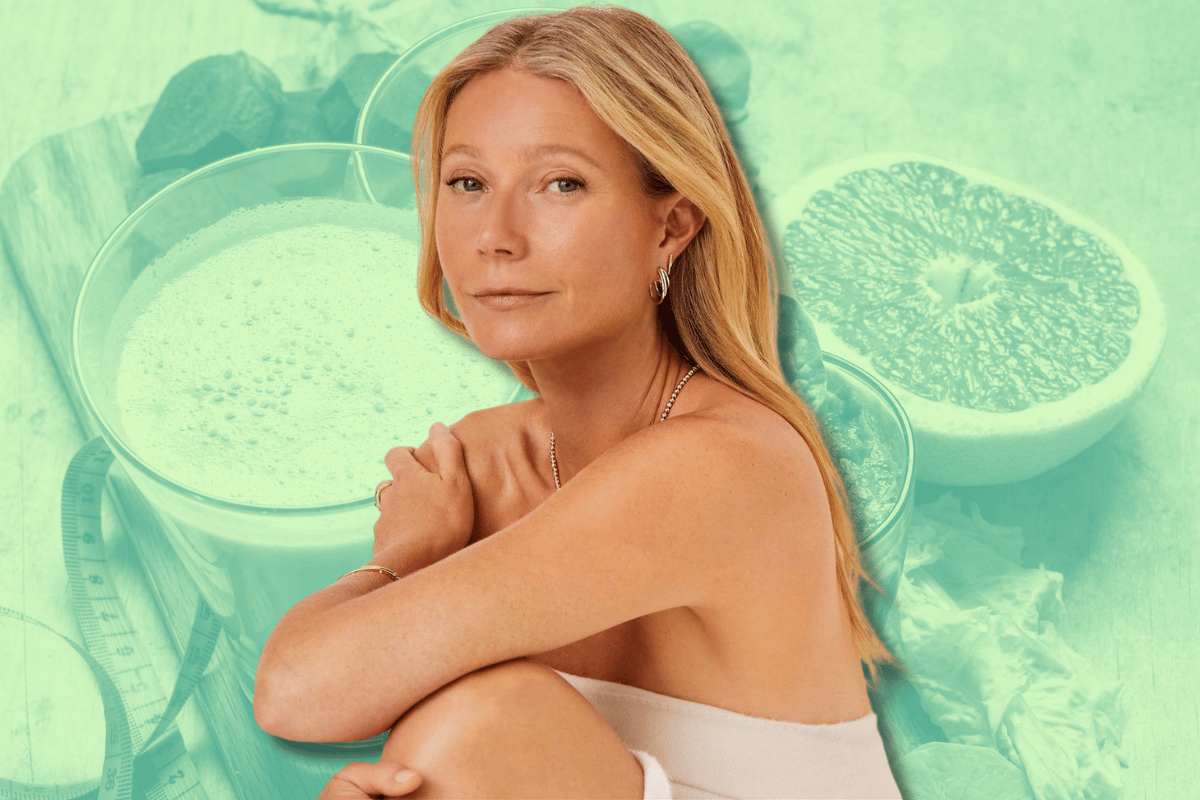
Gwyneth Paltrow's aspirational, lean, and golden body photographed for her recent 50th birthday has been garnering a lot of attention for the actor turned wellness entrepreneur.
While the sleek editorial image showed just how good Gwyneth looks on her milestone birthday, it subtly signalled how we could all look at 50 or indeed any age if only we ate 'clean' foods, used 'clean' serums, and worked out as hard and often as Gwyneth does.
Gwyneth's consistent personal brand of ultra-slim-and-always-glowing good health has helped build her lifestyle and wellness brand Goop into an influential $430 million global empire.
Watch the trailer for Netflix's The Goop Lab. Post continues below.
There are Goop beauty products, clothing ranges, fragrances, and jewellery that all feature heavily and 'organically' on Gwyneth's Instagram Feed. There are the wacky vagina candles, sex toys, and homeware collections. Then there are the recipes, supplements, and detox programs that take Goop from a lifestyle brand into a healthcare offering.
And there's a fine line (and quite a few million dollars) between an A-list celebrity designing clothes and blogging about banana muffins, to selling diet products to a generation of young people who want to emulate her healthy glow and lean physique.
